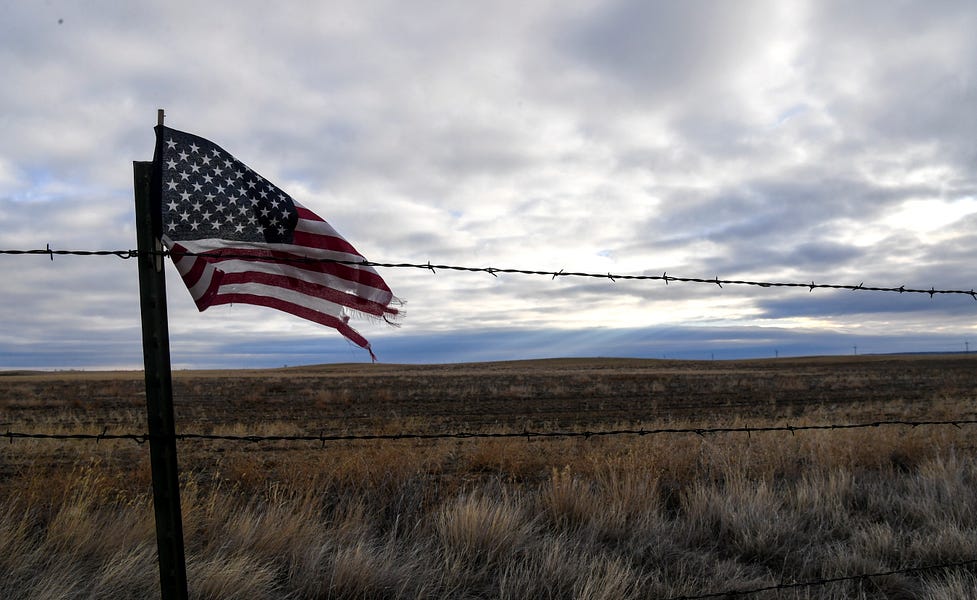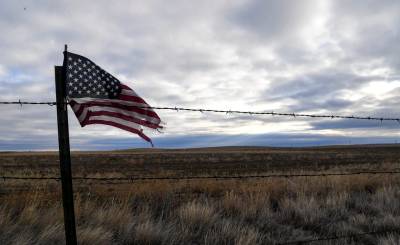Chad and Jennifer Brackeen did something noble in 2017: They opened their home to a child in need. We’ll call him Andy. His birth parents couldn’t care for him, so when the Brackeens decided not only to be his foster parents, but also to adopt him, his birth parents agreed. The Brackeens, Andy’s father testified, were the only family Andy had ever known.
But there was a hitch: Andy has Native American ancestry. As a result, his adoption triggered a 40-year-old federal law called the Indian Child Welfare Act (ICWA), which imposes a separate set of rules on cases involving “Indian children”—rules that are less protective than the laws that apply to kids of other races. Now the Brackeens—along with two other families and the attorneys general of four states—have gone to court arguing that ICWA violates the Constitution’s prohibitions on racial discrimination and intrudes on states’ authority to protect at-risk children. Their case was heard Wednesday by the 5th Circuit Court of Appeals in New Orleans.
Everyone involved agrees that ICWA was written with good intentions. In the decades before its enactment, Native American families were often targeted by aggressive government agencies that lacked knowledge of tribal culture and consequently mistook their traditional practices for abuse. ICWA was supposed to prevent such injustices. But instead of ensuring that they received the same legal protections as other Americans, ICWA compromised the needs of Indian children to accommodate the desires of tribal governments, resulting in a complex law that often bars state officials from rescuing abused minors and makes it virtually impossible to find them adoptive homes.
One major focus of the Brackeen case is whether ICWA violates constitutional prohibitions on racially discriminatory laws. Tribal lawyers point to a 1974 Supreme Court case called Mancari, which said that Congress doesn’t transgress those prohibitions when it treats tribal members differently from non-members, because tribal affiliation is “political” rather than “racial” in nature. But that argument can’t work with ICWA, because unlike other federal Indian laws, ICWA doesn’t apply to tribal members or Indian lands. Instead, it applies to children living off reservation who are “eligible” for membership and whose “biological” parents are members. And while eligibility requirements differ from tribe to tribe, all are based exclusively on biological ancestry.
That means any child anywhere who meets a tribe’s genetic “eligibility” profile will qualify as “Indian” under ICWA even if she never joins a tribe and has no political or cultural affiliation with a tribe. Lexi, for instance—a 6-year-old California girl whose great-great-great-great grandparent was a full-blooded Choctaw—qualified as “Indian” despite the fact she spoke no tribal language, practiced no Native religion, observed no traditional practices, and never visited tribal lands. Meanwhile, a child who’s fully acculturated with a tribe is not deemed “Indian” if he lacks the required pedigree—for instance, if he’s adopted by a tribal member. Sam Houston, who was adopted as a teenager by the Cherokee chief Oolooteka, would not qualify as “Indian” under ICWA if he were alive today, because he was racially white. In short, ICWA is based on racial, not political factors.
Once a child is deemed “Indian,” ICWA imposes rules that deprive that child of protections accorded to kids of other races. For example, under the laws of all 50 states, officers may rescue a child from neglectful parents if they first make “reasonable efforts” to aid the family—for example, by making counseling services available. “Reasonable efforts” are not required, however, in cases involving “aggravated circumstances” such as molestation, because it would be foolish to return abused kids to dangerous homes.
But ICWA imposes a different rule, called “active efforts,” which requires more than “reasonable” efforts and is not excused by “aggravated circumstances.” This means Indian children must be repeatedly sent back to homes that are known to be abusive. In one Nebraska case, for example, police removed three Native American girls from the stepfather who was molesting them—only to be told by the state Supreme Court that while they had satisfied the “reasonable efforts” requirement, they had violated the “active efforts” rule. The girls were therefore sent home, to experience what a judge later called “lifetimes of trauma”—something that would not have happened had they been white.
ICWA also imposes unusual evidentiary requirements that harm Indian children. If a child of any other race is being abused, state officials can intervene once they have “clear and convincing evidence” of mistreatment. That rule was created by a 1984 Supreme Court case that warned that a more stringent standard, such as the “beyond a reasonable doubt” standard that criminal courts use, would “erect an unreasonable barrier to state efforts to free permanently neglected children for adoption.” Yet ICWA ignores that warning and actually goes further, requiring not only proof “beyond a reasonable doubt,” but also testimony from expert witnesses. This requirement—literally more demanding than the rules that apply to death penalty cases—means Indian children must be more abused and for longer than children of other races before social workers can intervene. It also makes it exceptionally hard to find adoptive homes for vulnerable Indian children.
The same is true of ICWA’s race-based adoption “preferences,” which require that Indian children be adopted by “Indian families”—even of different tribes—instead of white, black, Asian, or Hispanic families. ICWA’s mandates even take precedence over the wishes of birth parents. In 1989, the Supreme Court allowed tribal officials to veto the decision of a Choctaw couple who agreed to have their child adopted by a white family, because ICWA gives tribes “an interest in the child which is distinct from but on a parity with the interest of the parents.” As a result, tribal officials frequently override decisions of Native parents who want to do what’s best for their kids.
These discriminatory rules often have tragic consequences. In November, a Crow child was taken away from the Montana foster family where he had found safety and sent to live with a Crow couple instead, despite plentiful evidence that they were unfit. They murdered him shortly afterward. In 2018, when 5-year-old Josiah Gishie was killed by his mother, Arizona officials admitted that they’d known he was being abused, but had been unable to act because of ICWA. Countless similar stories testify to the foolishness of depriving kids of legal protection based on their genes.
It’s particularly obscene that ICWA does this to America’s most at-risk demographic. Native American kids are more likely to suffer from abuse, alcoholism, violence, and suicide than children of any other ethnicity. These children are all citizens of the United States, constitutionally entitled to the same protections as children of all other races. Yet federal law denies them that, subordinating their best interests to racial considerations and to the demands of tribal governments that—like all governments—often prioritize their own power over the interests of their constituents.
American Indian history is full of tragedies and cruelties that all share a single sordid quality: the classification of Indians as a separate people to whom the principle of equality does not apply. It is imperative that the courts put an end to that idea—before it is inflicted on Andy’s generation.
Timothy Sandefur is vice president for litigation at the Goldwater Institute and filed an amicus brief in the Brackeen case.
Photograph of an American flag on an Indian reservation in Montana by Jonathan Newton/Washington Post via Getty Images.






Please note that we at The Dispatch hold ourselves, our work, and our commenters to a higher standard than other places on the internet. We welcome comments that foster genuine debate or discussion—including comments critical of us or our work—but responses that include ad hominem attacks on fellow Dispatch members or are intended to stoke fear and anger may be moderated.
With your membership, you only have the ability to comment on The Morning Dispatch articles. Consider upgrading to join the conversation everywhere.